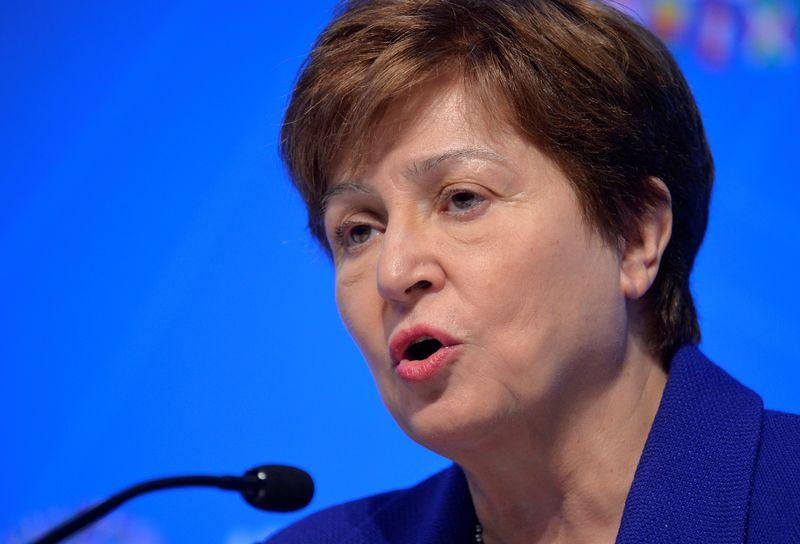Also in this package
Dubai: The International Monetary Fund (IMF) retained its global growth forecast at 6 per cent for 2021 in its latest Global Economic Outlook update. The Washington-based organisation said prospects have diverged further across countries since its April’s forecasts.
Vaccine access is emerging as the principal fault-line along which global recovery splits into two blocs: those that can look forward to further normalization of activity later this year (almost all advanced economies) and those that will still face resurgent infections and rising COVID-19 death tolls.
Universal recovery not assured
The institution has warned that recovery is not assured even in countries where infections are currently very low so long as the virus circulates elsewhere. “While more widespread vaccine access could improve the outlook, risks on balance are tilted to the downside,” said Gita Gopinath, Economic Counsellor and Director of the Research Department at IMF.
“The emergence of highly infectious virus variants could derail the recovery and wipe out $4.5 trillion cumulatively from global GDP by 2025.”
While the latest 2021 global forecast is unchanged from the April 2021 estimates, there have been some offsetting revisions. Prospects for emerging market and developing economies have been marked down for 2021, especially for Emerging Asia. By contrast, the forecast for advanced economies is revised upwards.
These reflect pandemic developments and changes in policy support. The 0.5 percentage point upgrade for 2022 derives largely from the forecast upgrade for advanced economies, particularly the US, reflecting the anticipated legislation of additional fiscal support in the second-half of 2021 and improved health metrics more broadly across the group.
Regional prospects

The Middle East and North Africa region growth is forecast at 4.1 per cent for 2021 and 3.7 per cent for 2022, respectively. Saudi Arabia, the largest economy in the region, is projected to grow 2.4 per cent in 2021 and 4.8 per cent in 2022.
The April REO had forecast the UAE and Saudi Arabia to grow 3.1 per cent and 2.9 per cent in 2021, respectively. Revised projections for the UAE’s growth outlook was not available in the IMF report.
Higher oil prices and early vaccine rollouts support the outlook for many GCC economies. The recent increase in oil prices will boost confidence, supporting non-oil GDP, which is projected to expand by 3.3 per cent in 2021.
With improved oil prices, fiscal conditions of GCC countries are projected to improve this year and the next. The overall fiscal deficits of MENA region are projected to shrink from 9.7 per cent in 2020 to 5.7 per cent in 2021. In Saudi Arabia, the fiscal deficits are projected to decline from 11.3 per cent of GDP last year to 3.5 per cent this year.
Inflation outlook
The IMF said recent price pressures for the most part reflect unusual pandemic-related developments and transitory supply-demand mismatches. Inflation is expected to return to its pre-pandemic range in most countries in 2022 once these disturbances work their way through prices - and yet uncertainty remains high.
Commodity prices are expected to increase at a significantly faster pace than assumed in the April 2021 WEO. Amid the strengthening global recovery, oil prices could rise close to 60 per cent above their low base in 2020. Non-oil commodity prices are set to rise close to 30 per cent above 2020 levels, reflecting particularly strong increases in the price of metals and food.
Elevated inflation is also expected in some emerging market and developing economies, related in part to high food prices. Central banks should generally look through transitory inflation pressures and avoid tightening until there is more clarity on underlying price dynamics, the IMF said.
Clear communication from central banks on the outlook for monetary policy will be key to shaping inflation expectations and safeguarding against premature tightening of financial conditions.
“Central banks should avoid prematurely tightening policies when faced with transitory inflation pressures, but should be prepared to move quickly if inflation expectations show signs of de-anchoring,” said Gopinath.
Policy easing must continue
The IMF said fiscal policy should continue to prioritise health spending, including on vaccine production and distribution infrastructure, personnel, and public health campaigns to boost take-up. Fiscal policy space to accomplish this varies across countries.
On monetary policy, the IMF called on central banks to generally look through transitory inflation pressures and avoid tightening until there is more clarity on underlying price dynamics. There is a risk that transitory pressures could become persistent and central banks may have to take pre-emptive action.
Financial sector policies, the IMF said, have to execute a difficult balancing act to avoid a sudden increase in bankruptcies by unwinding support too soon. But these should refrain from extending the life of low productivity “zombie” firms if support is maintained for too long.
The extraordinary measures from 2020 (including credit guarantees, debt moratoriums, relaxed classification and provisioning guidelines on delinquent loans) should increasingly become more targeted.




